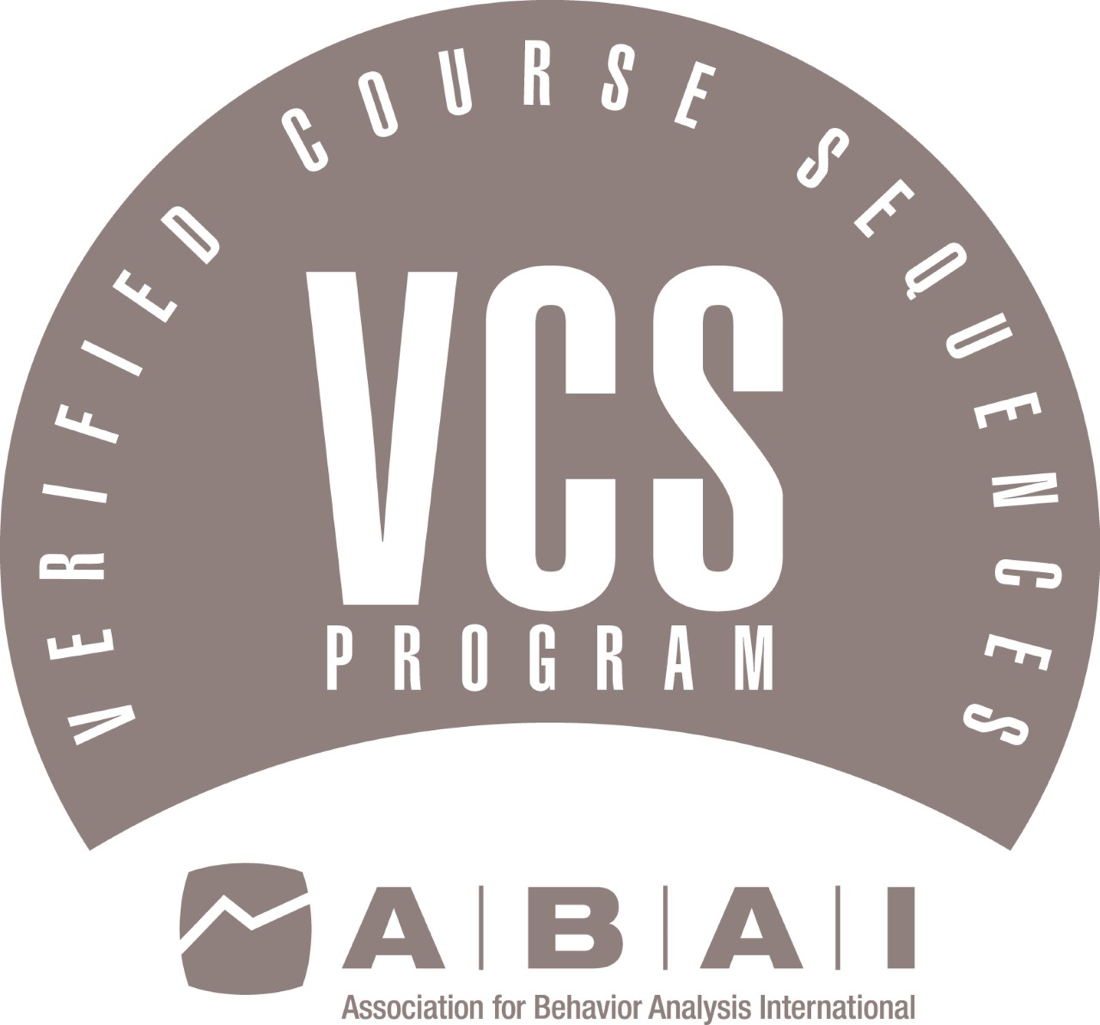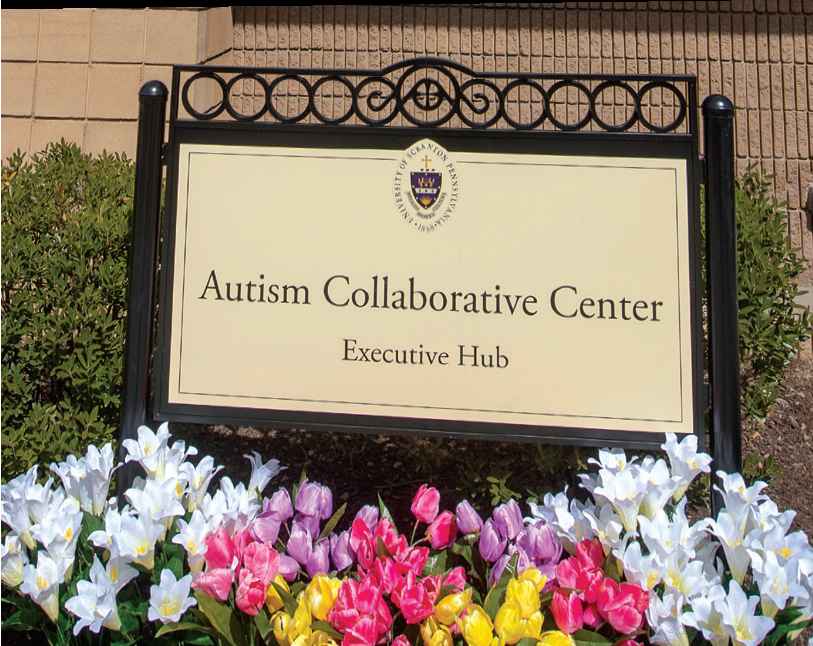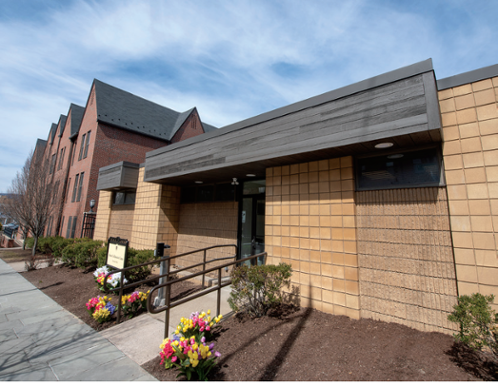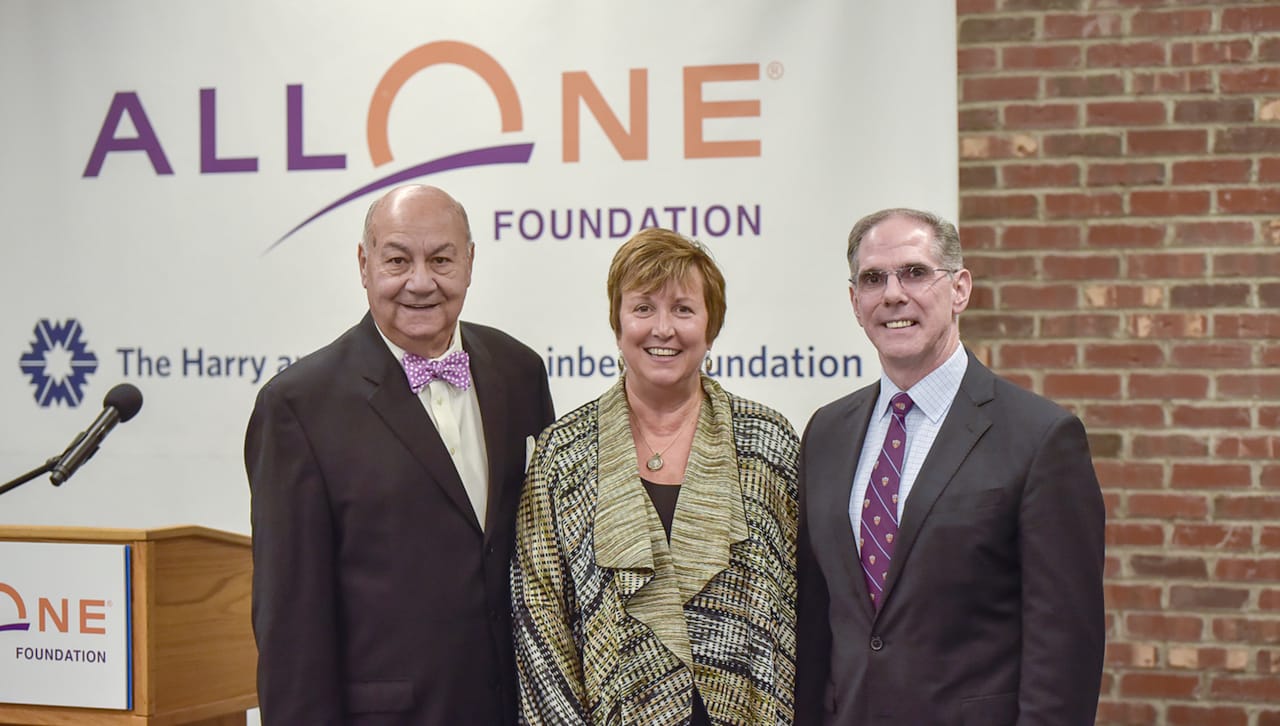Applied Behavior Analysis, MS
The new Master’s of Science in Applied Behavior Analysis (ABA) graduate program, offered in conjunction with the Department of Counseling and Human Services, provides the educational experiences necessary for eligibility for examination for achieving certification as a Board Certified Behavior Analyst (BCBA) by the Behavior Analysis Certification Board (BACBTM). The Master’s of Science in ABA graduate program includes a Verified Course Sequence, which is a requirement for eligibility to sit for the Behavior Analyst Certification Board (BACB)‘s certification exam.*
The MS in ABA is designed for individuals who are seeking to become Board Certified Behavior Analysts® (BCBA®). Students accepted into the program will acquire the knowledge and competencies to design and deliver effective behavioral interventions across a variety of populations and settings, with a focus on individuals with Autism as well as Intellectual and Developmental Disabilities.
The core curriculum consists of coursework that focuses on content areas such as concepts and principles, ethics, research methodology, assessment and intervention strategies, and personnel supervision and management. Master’s students will take additional courses to complete the education requirements for graduation.
The program is designed to provide students with the educational experiences necessary to be a professional Behavior Analyst. In the majority of states, payor sources (e.g., private insurance, Medicaid) require certification by the BACB™ for reimbursement of services provided by therapists working with individuals living with Autism. Many other employers (e.g., Schools, clinics) also require certification to provide behavioral services.
*The Association for Behavior Analysis International has verified the MS in ABA core courses as meeting the coursework requirement for eligibility to take the Board Certified Behavior Analyst® examination. Students will also need to meet additional requirements before they can be deemed eligible to take the examination. You can find the most recent eligibility requirements for becoming a BCBA from the Behavior Analyst Certification Board (BACB).
to take the examination. You can find the most recent eligibility requirements for becoming a BCBA from the Behavior Analyst Certification Board (BACB).
Program faculty include Ph.D. level Board Certified Behavior Analysts (BCBA-D) with extensive experience in the areas of clinical services, education, and research across a variety of client populations including autism and intellectual/developmental disabilities. Faculty members are able to provide individualized attention to support students’ academic and career goals.
Program Requirements
Successful applicants for the Master’s of Science in ABA will be committed to (a) learning the scientific bases of behavior change, (b) serving vulnerable populations by making meaningful changes in socially significant behavior, and (c) applying skills for improving the human condition. Although some applicants may have completed courses in psychology, sociology, social work, education, counseling, and related areas, the BACB™’s certification policies allow for a wide range of Bachelor’s degrees. ***
***The Behavior Analyst Certification Board® has specific degree requirements for eligibility to apply for the BCBA® credential. Details can be found at https://bacb.com/bcba-option-1/
We are now accepting applications! Program Directors review applications and pay particular attention to each applicant’s ability to address program specific professional goals and professional identity in the statement of intention. Group and/or individual interviews with program faculty prior to acceptance are required.
For general application requirements, please Visit Our Admissions Webpage.
Curriculum
The Master’s of Science in Applied Behavior Analysis degree will be offered as a full-time, completely online, graduate program of study. This 36- credit hour graduate degree program may be completed in two years, but may be extended to three years for a part-time student.
Each student is required to complete classroom-based didactic courses and 6 credit hours of thesis or capstone. Note that in addition to the educational requirement, the BACB™ requires a supervised fieldwork experience. The supervised fieldwork experience will be arranged by the students, and the responsibility for meeting this BACB™ requirement lays with the student and the student’s on-site supervisor. In general, the supervised fieldwork experience should facilitate real-world experience in the application of Behavior Analytic principles, clinical services, and research.
The curriculum is based on the certification standards (for individuals) established by the BACBTM.
Applied Behavior Analysis Curriculum
ABA 605: Philosophical Underpinnings of Applied Behavior Analysis
ABA 600: Concepts and Principles in Applied Behavior Analysis
ABA 640: Measurement and Experimental Design in Applied Behavior Analysis
ABA 610: Ethics in Applied Behavior Analysis
ABA 615: Behavior Assessment in Applied Behavior Analysis
ABA 625: Behavior-Change Procedures in Applied Behavior Analysis
ABA 635: Personnel Supervision and Management Interventions
ABA 545: Basic Behavior Analysis
ABA 599: Thesis
ABA 590: Capstone
ABA 572: Clinical Behavior Analysis in Children and Adolescents
ABA 573: Behavior Analysis in Multi-disciplinary Pediatric Care
Modes of Learning
Each course contains 45 hours of instruction which are delivered online using some or all of the following synchronous and asynchronous learning methods:
- Action Plan: The action plan lays out the requirements for each module. Since this is an online program requiring students to monitor their activity and requirements online each module, the action plan will help students keep track of their work.
- Recorded Video Lectures with Active Student Responding Items: The content is provided in the form of a PowerPoint which is accompanied by professor audio and video files. Additionally, the content presentations have active student responding items embedded throughout.
- Applied Research Review: Applied research helps make the connection between the content we study in class and the current and past research that has been done in applied behavior analysis. The applied research section of the learning modules provides a citation and corresponding abstract for a peer-reviewed article in one of the top tiered journals in applied behavior analysis.
- Scenario Prescription / Case Studies: Scenario-based learning is a highly effective approach to engaging students because it gives them control over their decisions during the learning process. Scenarios enable learners to tap their already-established skills and apply them in real-life circumstances. Students are provided with a scenario in which they can apply the content to clinical situations that they may face as a behavior analyst.
- SAFMEDS: We end each module with Say All Fast Minute Each Day Shuffled (SAFMEDS). The SAFMEDS contain targeted concepts and corresponding definitions.
- BLOG: The blogs provide quotes and images in applied behavior analysis.
- Applied Learning Activities: Each module has an applied learning activity that provides students with an opportunity to apply the concepts and strategies learned in class to professional responsibilities they will hold as a behavior analyst, such as writing functional behavioral assessments, conducting research, and measuring client progress. Assessment of student learning through examinations are also embedded in each course in the form of a mid-term and final examination.
- Additional Readings, Websites, and Video Links: Many modules contain resources in the form of readings, websites and videos related to the course content for that module. These resources are additional learning materials.
- A Virtual Meeting (Live Discussion Forum): Research shows that social presence in an online course is a vital element in online interaction. Virtual meetings are synchronous interactions between professors and students conducted with a web-based application. The virtual meetings will be held once per week for one hour.
Purpose of the Applied Behavior Analysis Program
Beyond the Classroom

A Welcoming Space
The Center for Autism Education & Training assists individuals and families in navigating services throughout the region.

Growing Need
Highly educated & skilled providers of autism services are needed to help children and family members reach their full potential

Regional Autism Services Collaborative Announced
The Autism Collaborative Centers of Excellence (ACCE) was formed to deliver a full array of services and supports for individuals with ASD, from early intervention to adult services. The University will serve as the Executive Hub of the five family-friendly centers and recently created a welcoming space for individuals with autism and their families. The Hub will provide information and referral services.
AllOne Foundation and Charities
Debra Pellegrino, Ed.D., Dean of the Panuska College of Professional Studies, discusses the Autism Collaborative Centers of Excellence on "Newsmakers."
Certification
Certification standards, accreditation standards and established practice/educational benchmarks drove the majority of the educational and supervised fieldwork requirements.
Certification as a behavior analyst is provided by the Behavior Analysis Certification Board (BACBTM). Certification is necessary for practice, as it is required for licensing in at least 33/50 states, and is required for billing Medicaid and insurance companies in all 50 states. That is, one cannot bill for services in the United States without the certification. Thirty of the 36 credits in the proposed program are dedicated to meeting the certification standards set by the BACBTM.
Meet the Program Director

Vanessa Ann Jensen, Ed.D., BCBA-D
Director, Applied Behavior Analysis Program
Ed.D., Indiana University of Pennsylvania M.S., University of Scranton B.S., University of Scranton
570-941-5810vanessa.jensen@scranton.edu





